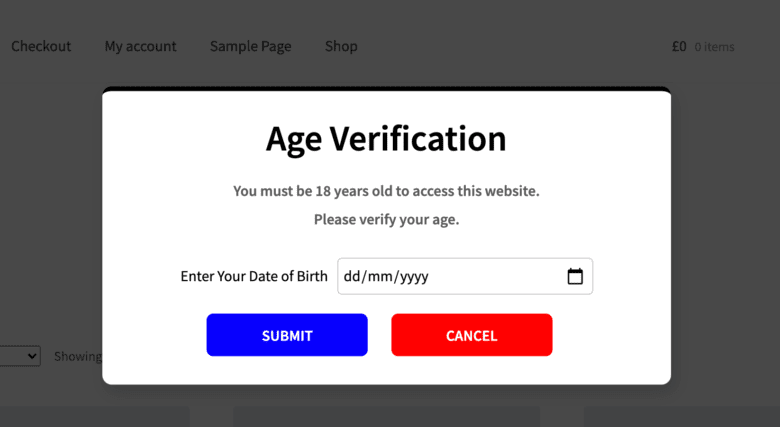There is an increasing push amongst the UK government to protect young people from adult content online. This is certainly a worthwhile endeavor. However, the government is increasingly finding that succeeding in this task will be much more difficult than perhaps initially presumed. This became increasingly clear with the results of a recent YouGov poll which found that the vast majority of UK adults would be unwilling to participate in a current proposal aimed at age verification.
UK Age Verification Plan Would Require Proving Identity
Historically, efforts at age verification on the web have included simply entering a date of birth or clicking to confirm that a person is over 18. Obviously, these efforts are incredibly ineffective as they can easily be bypassed. The UK government’s current efforts at online safety legislation sought to create a more thorough process of vetting, requiring proof of age verification before users would be able to access adult content.

This proposal is rooted in efforts to protect young people from illegal content and other age-inappropriate content on the internet. The process proposed would require users to upload an official photo document such as a passport or license in order to prove that they are of age. Once the age verification check is passed, the user would then be able to access the website in question.
While this procedure would obviously be targeted at adult web sites, the legislation in question would target inappropriate content in a much more expansive manner. It would require age verification on all sites or apps that also provide user-to-user content or communication, meaning that a large portion of the internet would be required to implement this process.
Survey Notes Strong Opposition to Age Verification Process
While the process proposed by the UK government as part of the online safety legislation sounds like it would work in theory, the reality is that it will likely fail in practice. This thought was made quite clear by a recent YouGov survey that sought to address the views of UK adults towards the proposed age verification process.
The survey revealed that 78% of UK adults would not be willing to participate in an age verification process that required them to upload a document linked to their identity in order to access adult content on websites. This view was shared fairly equally despite a person’s personal views on adult content. Of those who believe adult content should be legal for adults, 76% argued that it should be able to be viewed anonymously while only 11% thought an ID should be required for access.
There are likely a number of reasons behind this opposition to the government’s plan. For example, the process of age verification with a document could be viewed as complex or too time intensive. However, the major source seems to be privacy as 64% of respondents noted that they don’t trust the companies to hold the data while 63% fear the data falling into the hands of hackers through breaches.
Open Rights Group Notes Age Verification Concerns
The Open Rights Group, an organization aimed at protecting consumer privacy, shared the concerns of the survey respondents. They noted a number of concerns related to this age verification proposal as well as practical concerns related to its implementation.
First, the group noted major concerns about user privacy. One of the unintended effects of this law would be that a record would be generated of much of a person’s internet history, particularly since the law would include any site with user-to-user content or communication. Furthermore, there is a significant risk of problems due to hackers accessing the data.
An example of this given was the 2015 Ashley Madison breach where hackers accessed the user information of the adult web site. This led to many people being blackmailed by hackers, leading them to ask for money in exchange for not exposing their internet usage to spouses. The blackmail led several people to commit suicide.
Additionally, the Open Rights Group noted problems with the logistical implementation. Rather than upload a passport or license each time someone wanted to visit a site requiring it, most users would simply use a VPN to circumvent the requirement. For those that didn’t, fear of privacy concerns would likely drive them to more obscure, unregulated sites where users could be exposed to more extreme content or viruses and malware.
Back to Square One on Age Verification
The safety of the internet is certainly a very important issue, and this includes protecting young people from adult content. However, issues such as privacy are also important concerns regarding internet safety. The current age verification proposal focuses too intently on one thing and fails to realize its effects on other issues. If the government’s efforts forcreating a safer internet are to be successful, they will almost certainly need to take a more nuanced and less procedural view of how to implement proposals.



